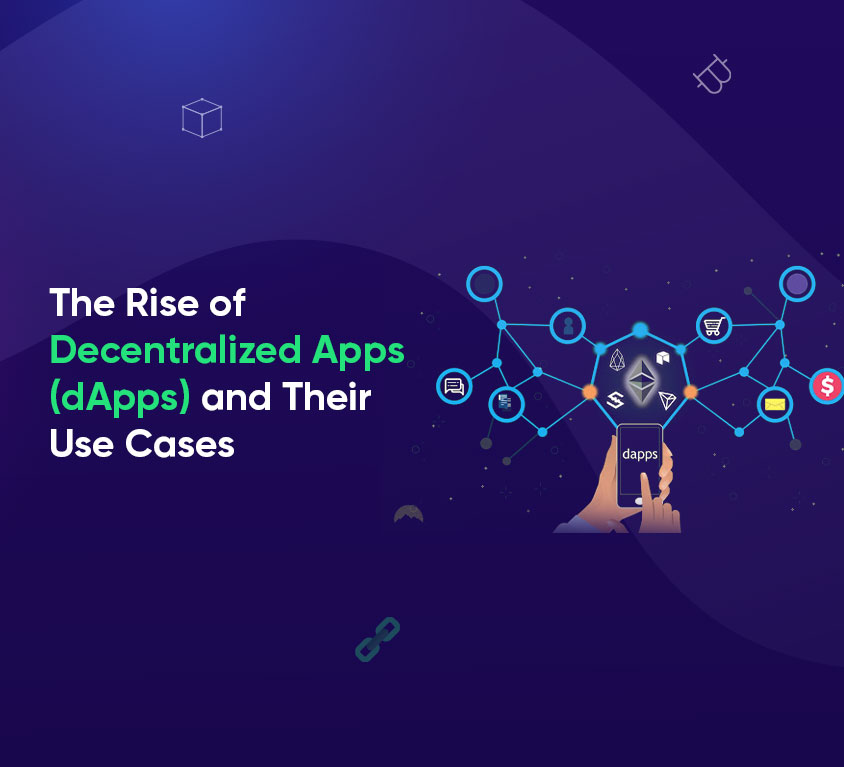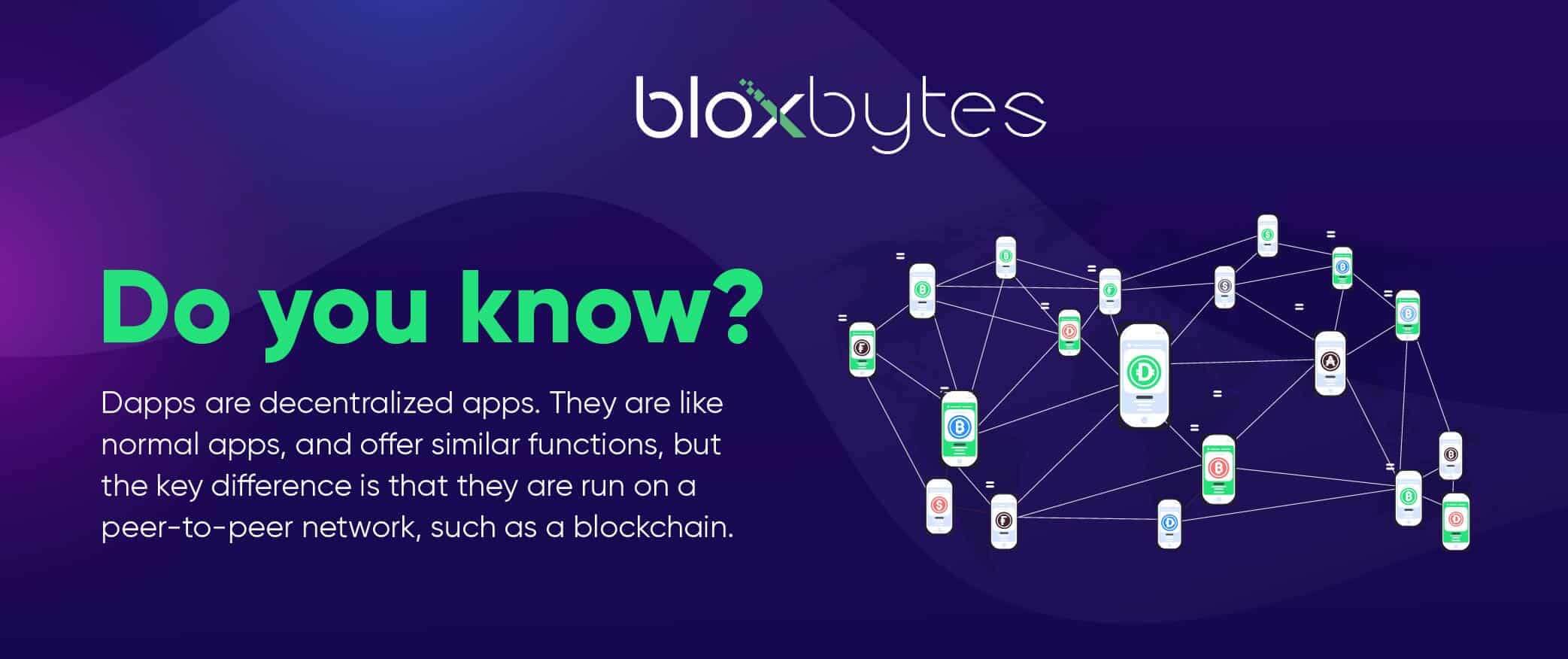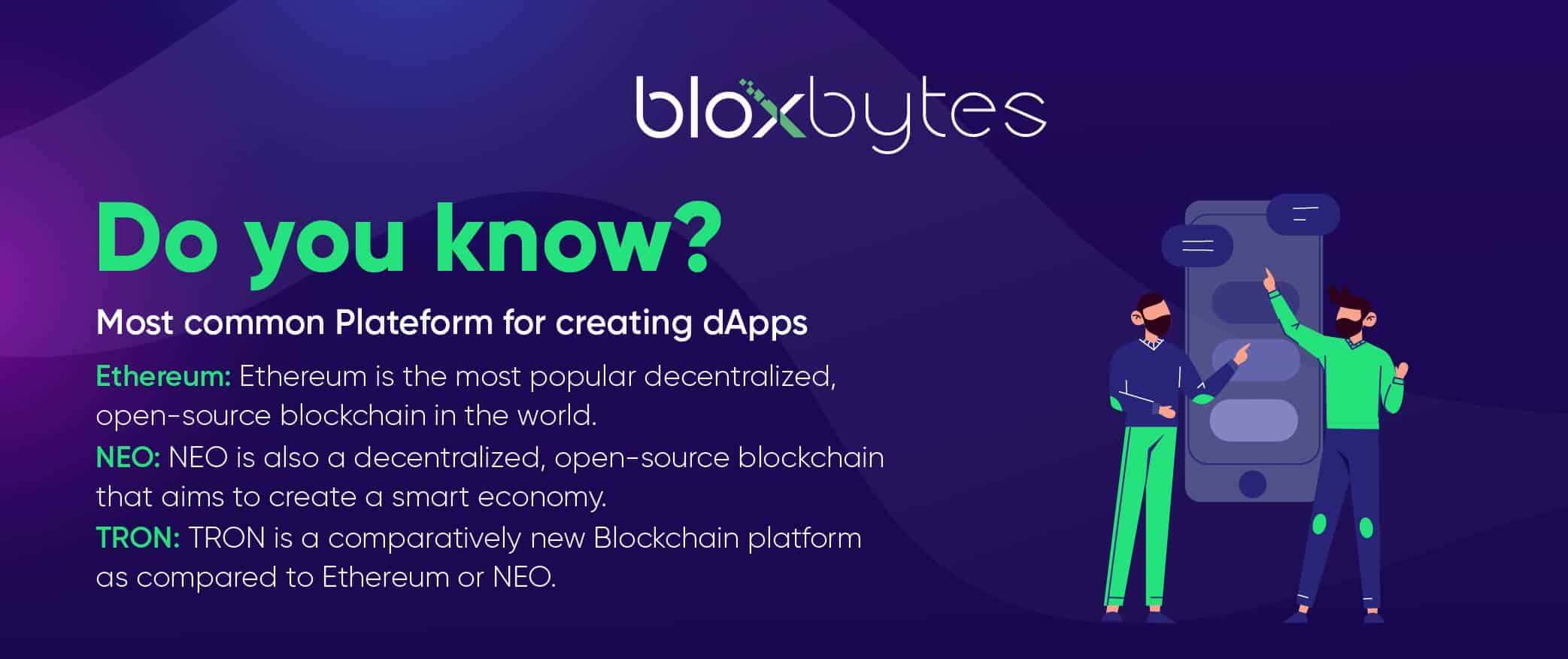
Introduction
Blockchain & Web3 Services Trusted By Leaders
- Develop innovative solutions using our state-of-the-art blockchain expertise.
- Achieve accelerated growth with robust & scalable Web3 consulting.
- Unlock 360-degree security with our top-rated blockchain development.
The Rise of Decentralized Apps (dApps) and Their Use Cases
Decentralized applications, or DApps, are software applications that run on blockchain technology and smart contracts. They offer a range of features and capabilities and function similarly to traditional apps but with additional benefits. In recent years, a surge of interest has emerged in building dApps that are more secure, resilient, and transparent than traditional apps. In addition, banks serve as central authorities for lending and borrowing money. However, with the rise of cryptocurrencies and blockchain technology that have decentralized systems at their core, there is growing interest in using them for financial domains as well as in other industries. In this post, we’ll explore decentralized apps in detail, how DApps work, their use cases, and their advantages and challenges.What are Decentralized Apps?
DApps run on a blockchain network, and no single entity has control. As a result, these apps are secure and resistant to censorship and downtime. The following characteristics will help you understand what DApp is:- It is open source, which makes it accessible and adjustable to anyone to the software’s code.
- It uses blockchain to store and transmit data.
- It uses a cryptographic token, such as Ether (the token used on the Ethereum blockchain), to reward users for their participation in maintaining the network.
- It has a decentralized consensus mechanism for decision-making, such as pow or pos.

How Decentralized Apps work?
Dapps run on a network of computers (called “nodes”) that verify and execute transactions. Moreover, these applications run on a blockchain and can use smart contracts to facilitate user transactions. If someone interacts with a DApp, it means interacting with its smart contract, which executes the predetermined actions.Quick Overview of DApps and Smart Contracts
DApps (decentralized applications) and smart contracts are often associated with one another. Smart contracts are self-executed computer programs that are stored and replicated on a blockchain network; they use smart contracts to facilitate their operation. Because of the decentralized nature of DApps and their use of smart contracts, they are resistant to censorship, fraud, and downtime, all desirable features for specific applications.Types of decentralized apps:
There are three major categories of decentralized apps (DApps), based on their architecture and the blockchain layer on which they operate.Layer 1 DApps:
Decentralized applications that run on their blockchain. In addition, they are self-contained and rely on the underlying blockchain infrastructure for security and integrity.Layer 2 DApps:
These apps are developed on top of a Layer 1 dApp and use the underlying blockchain as a foundation. They often utilize tokens and can help to scale the network by offloading some of the workloads to a separate layer. Layer 2 dApps can be considered protocols that interact with the Layer 1 dApp.Layer 3 dApps:
These apps are developed on top of Layer 2 DApps and provide the necessary APIs and scripts for the other two layers to interact. They often facilitate the user experience by allowing access to various Layer 2 DApps through a single interface.Why Use DApps?
Decentralize Apps offer a secure way to execute various functions and transactions. Some potential benefits of using a DApp include the following:1. Decentralization:
DApps operate on a network of computers or “nodes” that work together to verify and execute transactions. This decentralized structure can make DApps more resistant to fraud and other types of interference.
2. Security:
DApps runs on blockchain technology, which uses cryptography to secure transactions and protect against tampering. DApps are more secure than traditional applications that rely on a centralized server or database.
3. Transparency:
DApps are often open-source, meaning their code is available on the internet, can be reviewed and audited by anyone, and can increase transparency and trust in the system.
4. Autonomy:
DApps can be programmed to execute predetermined actions automatically without intermediaries or human intervention. As a result, Dapps can increase efficiency and reduce the risk of error.

Read More: An Introduction to Dapps and 5 Facts About Decentralised Apps That Might Surprise You!
Blockchain dApps can take advantage of the decentralized, secure, and transparent nature to execute various functions and transactions.Use Cases: How Industries Can Take Advantage of DApps?
Financial services:
Dapps can facilitate peer-to-peer cryptocurrency exchanges, enable secure online payments, and automate financial transactions.
Cryptocurrency exchanges:
Dapps can facilitate peer-to-peer cryptocurrency exchanges. These exchanges are often not regulated, making it easier to trade cryptocurrencies anonymously. However, they are also more susceptible to hacks.
Retail:
Dapps help secure transactions, track goods through the supply chain and manage inventory. DApps can track the movement of goods through a supply chain and verify product authenticity. These apps can help companies ascertain the quality of their products and ensure that consumers are not getting fake goods.
Government:
Dapps can enable secure and transparent voting systems, manage public records, and automate government processes. DApps enable fast, transparent, and verifiable voting systems. Governments could use this to ensure that citizens are not being disenfranchised and by businesses to let employees vote on company issues.
Identity Verification:
Dapps can verify the identity of users and enable secure access to services. As a result, fewer identity thefts will happen.
Healthcare:
The decentralized app can securely store and manage electronic health records, enable remote patient monitoring, and facilitate the secure exchange of healthcare data. As a result, patients can easily access their information from any location. In addition, these apps create ease for doctors to diagnose patients’ conditions when they visit an emergency room.
Social media:
A potential use case for a decentralized application is that it can help build decentralized social media platforms that an individual or group does not control. As a result, it will help eliminate censorship and ensure that users have the freedom to express themselves.
Education:
Decentralized Apps can be used to verify the authenticity of educational credentials, enable secure access to educational materials, and facilitate the exchange of information between educators and students.
Real estate:
Decentralized Apps can facilitate the buying and selling of real estate, manage property records, and automate real estate transactions.
These are a few examples of the potential use cases for DApps. As the technology continues to evolve, new and innovative uses for DApps will likely emerge.
Conclusion:
To sum up, the rise of decentralized apps, or DApps, has brought a range of new possibilities and capabilities. Built on blockchain technology and smart contracts, DApps offer greater security, transparency, and resilience than traditional applications. Dapps facilitate peer-to-peer cryptocurrency exchanges, enable secure online payments, or automates financial transactions. While DApps have the potential to revolutionize multiple industries, their design, and implementation can be challenging due to the decentralized nature of blockchain technology. If you are looking to develop a decentralized app (DApp) for your business, you can onboard a reliable dApp development company. Stay tuned with BloxBytes!
Stay tuned with BloxBytes!